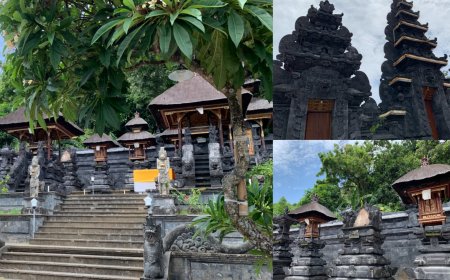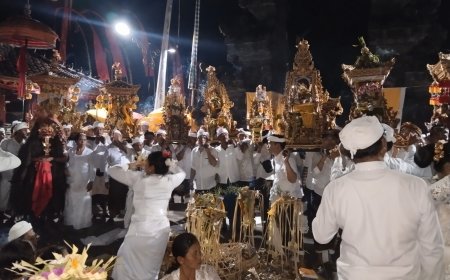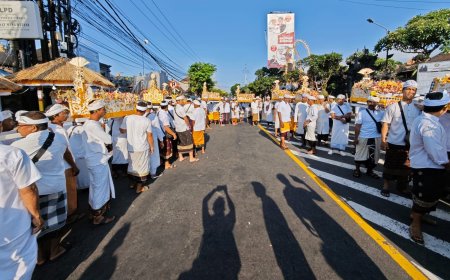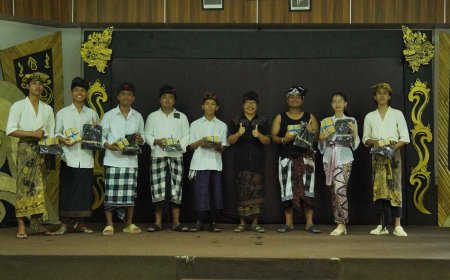Nuasen Karya: The Harmony of Dedication and Togetherness in Desa Adat Mengwitani
This activity cannot be completed in just one or two days but will last for almost a month. Nanceb Salon, with its large scale and high complexity, requires considerable time to ensure that every aspect of the ceremonial facilities is perfectly prepared. The krama desa adat from each banjar participates in turns and continuously, ensuring that every detail of the ceremonial facilities is installed correctly and in accordance with tradition. This process reflects the dedication, perseverance, and spirit of mutual cooperation of the Mengwitani community, who work tirelessly for the success of this major ceremony. Although it takes a long time, each day spent in preparation is a tangible proof of their sense of togetherness and commitment to the spiritual and cultural values passed down through generations.
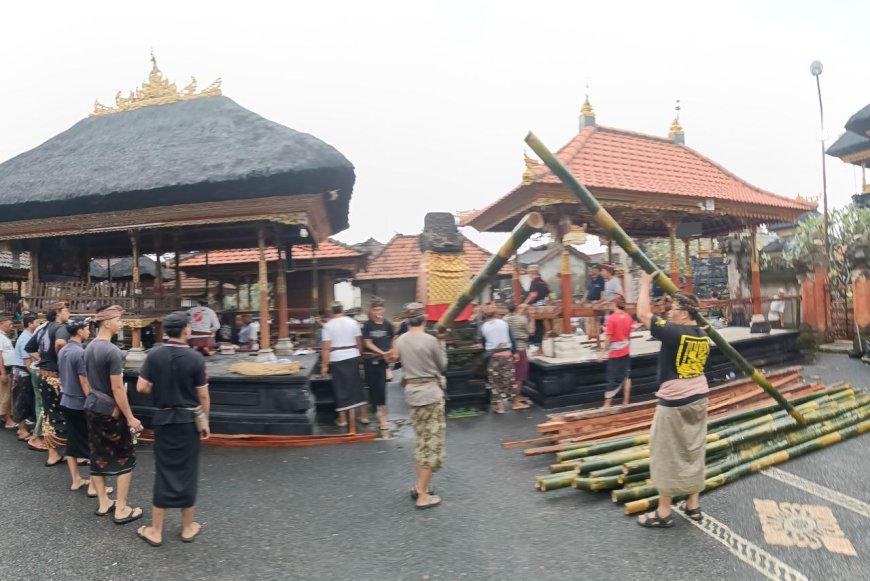
The Yadnya Agung Ngenteg Linggih, Ngusabha Desa, and Mapahayu Nini ceremonies at Pura Desa and Puseh, Desa Adat Mengwitani, Mengwi, Badung, have now entered the nuasen karya stage. This series of ceremonies, which will culminate on October 5, 2024, is an important moment in the spiritual life of the Mengwitani community.
Nuasen Karya is one of the crucial initial stages in the series of major ceremonies in Bali, including Yadnya Agung Ngenteg Linggih, Ngusabha Desa, and Mapahayu Nini. This stage marks the beginning of spiritual and material preparations for the entire series of ceremonies. Nuasen Karya involves various activities such as creating ceremonial facilities and preparing the materials needed for the rituals. Additionally, this stage includes prayers to Ida Sang Hyang Widhi Wasa to seek permission and blessings so that the entire series of ceremonies can proceed smoothly.
The Nuasen Karya event at Pura Desa and Puseh, Desa Adat Mengwitani, was solemnly held on Budha Umanis Dukut, July 3, 2024. This ceremony is marked by two main activities: Nuasen Nyamuh and Nanceb Salon. The event begins with prayers using specific offerings led by the Pemangku to pray for safety and smooth proceedings.
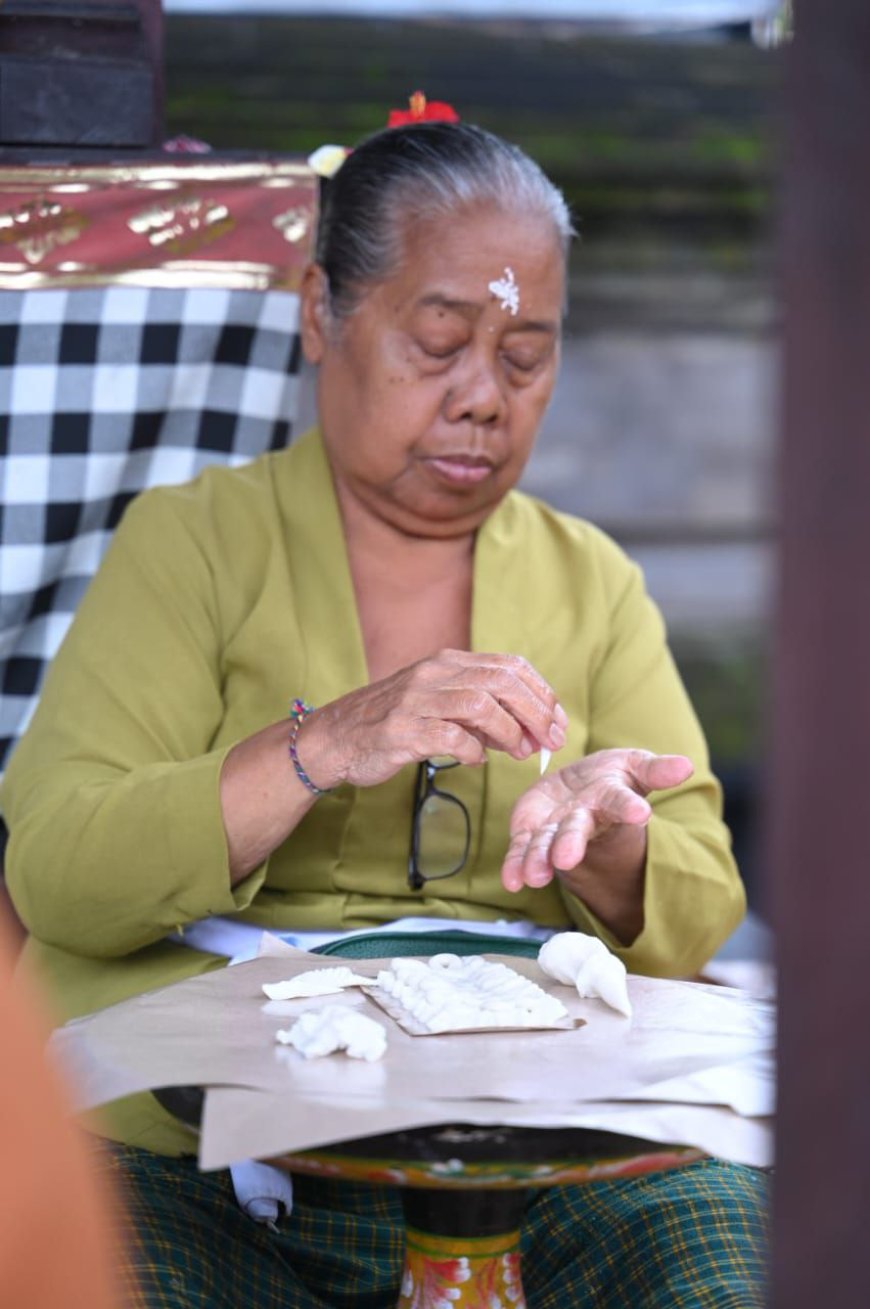
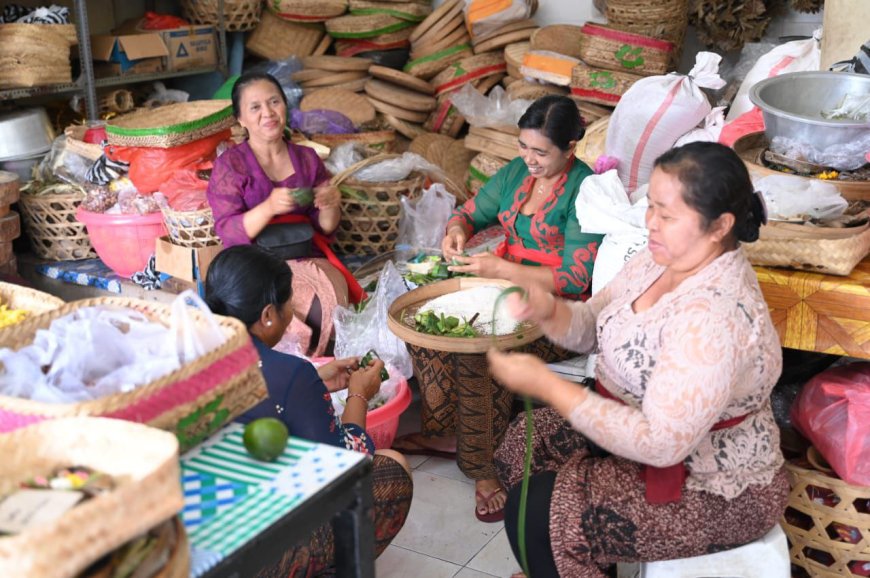
Nuasen Nyamuh
Nuasen Nyamuh is an activity that marks the beginning of making jajan samuh, a type of ceremonial cake prepared in various symbolic forms for rituals. The making of jajan samuh is carried out by the Serati istri, who require special skills. Jajan samuh not only serves as an offering but also symbolizes various spiritual and philosophical meanings, usually reflecting the contents of the universe and the manifestations of the gods and goddesses. The process of making these cakes involves dedication, with each shape and detail meticulously prepared to ensure the sanctity and perfection of the upcoming ceremony. Through jajan samuh, the community expresses their gratitude and requests, connecting themselves with cosmic and divine forces, strengthening the harmonious relationship between humans, nature, and the gods.
Meanwhile, Nanceb Salon is a major activity involving the creation of various ceremonial facilities, requiring substantial resources and mobilizing a significant number of krama desa adat from each banjar. Despite the rainy weather, this did not dampen the spirits of the krama desa in ngayah. With full dedication and a sense of responsibility, they continue to participate in creating various sacred ceremonial facilities (uparengga) in the temple area and its surroundings.
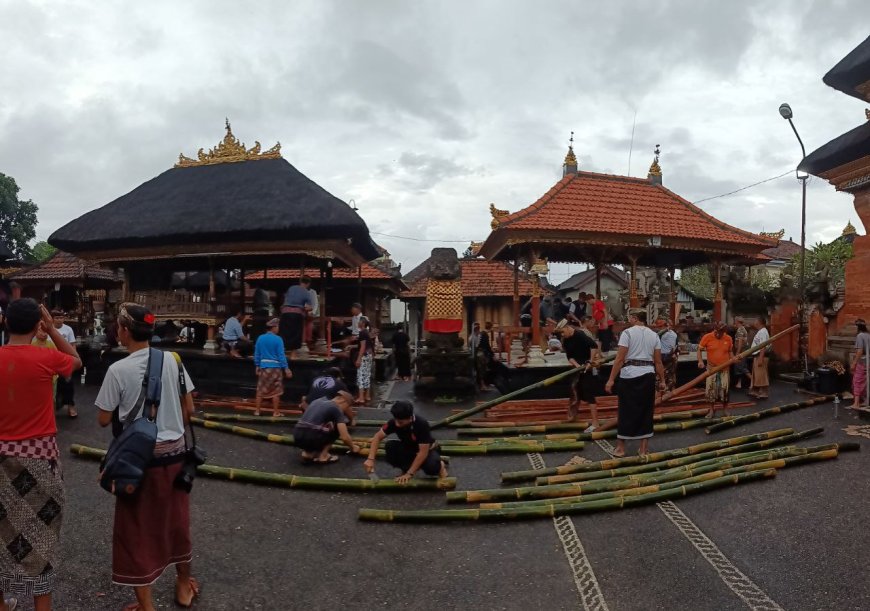
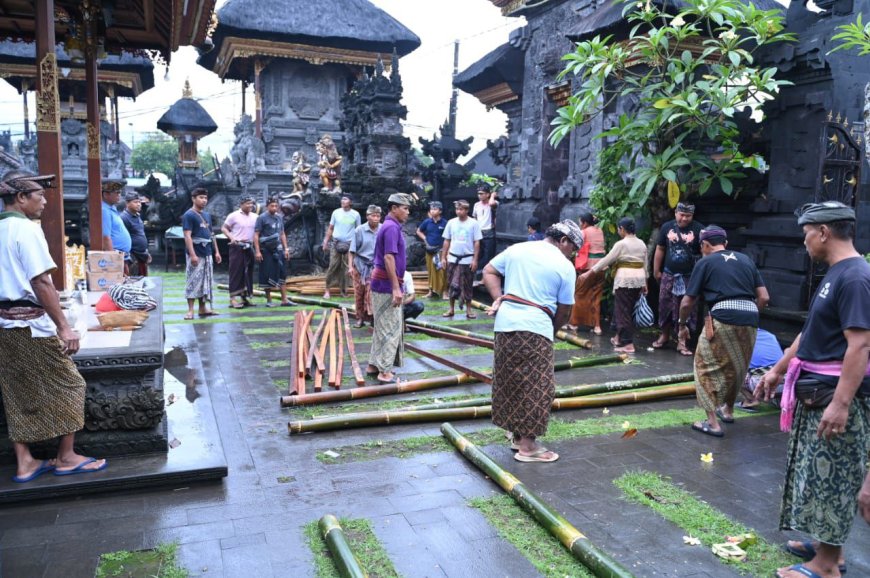
Nanceb Salon
This activity cannot be completed in just one or two days but will last for almost a month. Nanceb Salon, with its large scale and high complexity, requires considerable time to ensure that every aspect of the ceremonial facilities is perfectly prepared. The krama desa adat from each banjar participates in turns and continuously, ensuring that every detail of the ceremonial facilities is installed correctly and in accordance with tradition. This process reflects the dedication, perseverance, and spirit of mutual cooperation of the Mengwitani community, who work tirelessly for the success of this major ceremony. Although it takes a long time, each day spent in preparation is a tangible proof of their sense of togetherness and commitment to the spiritual and cultural values passed down through generations.




